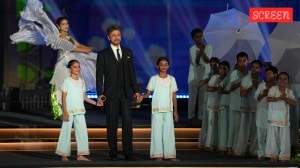Stay updated with the latest - Click here to follow us on Instagram
NGT calls for space to process leftover food from hotels in Punjab
A brainstorming session was organised in Chandigarh to discuss various environmental issues faced by the states of Haryana, Chandigarh and Punjab.
 The panel suggested that a designated place be identified where leftover food waste from hotel industries can be collected and processed properly as per the provision of the rules. (File)
The panel suggested that a designated place be identified where leftover food waste from hotel industries can be collected and processed properly as per the provision of the rules. (File)The National Green Tribunal (NGT), in its meeting on Saturday, called for a designated place where the food waste generated by hotel industries can be processed.
A brainstorming session was organised in Chandigarh to discuss various environmental issues faced by the states of Haryana, Chandigarh and Punjab. Justice Adarsh Kumar Goel, Chairperson NGT was the chief guest of the session along with other members such as Justice Pritam Pal, Justice Jasbir Singh, Urvashi Gulati, SC Agarwal and Baburam.
🗞️ Subscribe Now: Get Express Premium to access the best Election reporting and analysis 🗞️
In the session, officers from the Haryana, Punjab and UT Chandigarh discussed the status of development on the various aspects of pollution and what they have managed to achieve during the implementation of the District Environmental Plan.
The panel suggested that a designated place be identified where leftover food waste from hotel industries can be collected and processed properly as per the provision of the rules.
It was also specified that in the villages, there should be at least one pond for rainwater harvesting and any existing ponds or water bodies must be restored.
“All the hospitals must have Effluent Treatment Plant for liquid wastewater generated, and under no circumstances should the wastewater from these facilities be discharged into the public sewers without treatment which would otherwise affect the normal functioning of the sewage treatment plant. Each state should select at least one district as a model district where all the best practices are implemented and which may be an example for others to follow,” it was said in the meeting.
Justice Adarsh Kumar Goel emphasised the management of solid waste and the effective management of manpower.
He suggested that the rainwater harvested by each building must be quantified and recorded.
“Incentive may be given to those performing better. Bulk users of water like railway stations, industrial areas, etc., should be encouraged to use tertiary treated water for their activities,” it was said.
He raised concern over depleting groundwater levels and asked for an increase in public awareness.
The panel also discussed that Resident Welfare Associations (RWAs) and other civil societies should be engaged in sharing responsibility for better management of the environment.
The panel appreciated the efforts made by Punjab, Haryana and UT Chandigarh in saving the environment.







